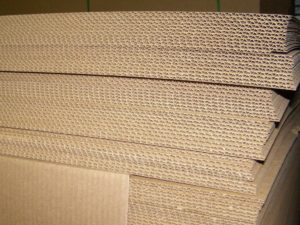
DTEK Oil&Gas, responsible for oil and gas segment in the DTEK Group, after signing a product sharing agreement (PSA) for the Zinkivska field (Poltava region) will invest UAH 1.2 billion in its exploration and development, the company’s press service has reported.
DTEK plans to re-process and re-interpret data from previously conducted seismic surveys and gas-dynamic well surveys, 3D surveys, and drill three cat wells in this area. The planned start of production is the second year since the start of work.
As reported, on July 1, the intergovernmental commission on PSA prepared proposals for the winners of nine continental fossil fuel fields put up for competition for the Cabinet of Ministers. The conclusions of the commission are advisory in nature. The final decision is to be made by the government, which must approve the results of the competition by the adoption of relevant documents.

The UFuture investment group of Ukrainian businessman Vasyl Khmelnytsky plans to invest $2.5 million in construction of a composite plant in the Bila Tserkva industrial park within two years. “We together with Volodymyr Khmurych director of the Bila Tserkva industrial park laid the capsule of the new plant in the industrial park. Here in six months there will be a composite plant. In America, composite materials have already replaced metal by 15-17%,” Khmelnytsky wrote on his Facebook page.
According to him, the plant intends to create 100 jobs.
“Before starting the construction of a large plant, we leased a place in the workshop, bought one line of equipment, adjusted it and launched the first batch of the product. It cost only $85,000, we made sure that everything works, that the quality of the product is high, and decided to scale up production,” Khmelnytsky said.
He recalled that this will be the second plant in the Bila Tserkva industrial park, and by the end of the year it is planned to build three more.
As reported, the first plant in Bila Tserkva industrial park – Plank Electrotechnic, which will be the first in Ukraine to produce modern electrotechnic systems, was officially opened in April of this year. UFuture invested $ 2.8 million in its creation.
UFuture unites companies and social projects of Khmelnytsky. The group includes the Bila Tserkva industrial park, the UDP development company, the Sikorsky Kyiv International Airport, outdoor advertising operator RTM-Ukraine, as well as innovative businesses: UDP Renewables (creates and develops photovoltaic power plants under its control), the pharmaceutical company Biopharma, innovative parks UNIT.City and LvivTech.City.

Ukrainian President Volodymyr Zelensky has said about his vision of how to make Ukraine the really rich country and called on business to invest money, time and ideas in Ukraine.
“We are carefully studying the experience of countries that are successful. We understand that they, first of all, invested in education, technology and infrastructure. Ukraine will do the same. Therefore, the role of the state in the economy in the next five years will be reduced to three things: do not interfere business; to build an excellent infrastructure for business and create conditions for doing business in Ukraine was simply convenient; third, focus on education, science and technology,” he said at a meeting with the business community in Kyiv.
Zelensky said that he was not used to catching up, therefore he is looking for creative breakthrough and innovative solutions for Ukraine with his team, and will tell more about them in the near future.
The president said that “to turn from a poor country into a middle-income country is not so difficult.” “The recipes are simple, success stories are known. All these is a mandatory program for us, and we will do it in the next five years,” he said.
At the same time, Zelensky is convinced that Ukraine needs to become a “truly rich country.”
“According to the World Bank, in 1960 there were 101 countries that are developing, and only 13 of them were able to become developed rich countries. In addition, most of them did it at the expense of natural resources. Economists have a special term: “middle income trap.” Its essence is very simple: poor countries compete with cheap labor. As soon as a country receives an average level of income, competitive advantages disappear and the country ceases to develop rapidly. According to this scenario, the country almost never becomes rich, the highest level is “medium,” he explained.
“Half a year ago I decided to invest the most precious thing I have – my time – in Ukraine. I urge you to do the same: invest time, money, ideas in Ukraine. Let’s change Ukraine together!” Zelensky said, addressing business at the end of his speech.
BUSINESS, EDUCATION, INVEST, SCIENCE, TECHNOLOGIES, ZELENSKY

Italy’s Ernest Airlines to open office in Kyiv and plans to invest EUR 100 mln in Ukraine
KYIV. June 19 (Interfax-Ukraine) – Italy’s Ernest Airlines will open its office in Kyiv this summer, and in 2020 plans to place two planes in Kyiv, according to a posting on the website of the Sikorsky Kyiv International Airport. As the airport press service said, Ernest Airlines has already invested more than EUR 30 million in the Ukrainian market over the past two years, and plans to invest more than EUR 100 million in the next two years.
“In 2020, it is also planned to place two aircraft in Kyiv. This will give even more opportunities for work to even more people in Ukraine,” the airport said.
According to the airport, Ernest Airlines services 13 destinations from Ukraine to Italy. In 2018, the airline transported more than 200,000 Ukrainian passengers, and in 2019 it is planned that the number of passengers from Italy to Ukraine and back will exceed 500,000 passengers.
“This year, Ernest will open a call center in Ukraine to attract even more Ukrainian operators who will be able to more effectively help all its passengers. Ernest also employs more and more crew members who speak Ukrainian to have such specialists on all their flights,” the airport said.
In addition, Ernest Airlines already has a special call center in Italy with Ukrainian-speaking employees.
Ernest Airlines is an Italian airline headquartered in Milan. The main operations center of the company is located in Tirana (Albania). The airline is a low cost carrier and serves the Italian and Albanian markets. The airline flies from Kyiv to Rome, Milan (Bergamo and Malpensa), Naples, Bologna and Genoa, and also from Lviv to Rome, Milan (Bergamo), Naples and Venice; from Kharkiv to Rome and Milan (Malpensa), and from Odesa – only to Rome.

The corrugated cardboard box plant Dunapack Tavria (Oleshky, Kherson region) plans to launch another corrugated cardboard processing line with an annual capacity of 16-18 million square meters in August, Dunapack Tavria CEO Kostiantyn Turyhin said at a briefing at the plant on June 11. “Investment in the launch of this line in total with peripherals will be about EUR 2 million,” he said.
According to Turyhin, over the past three years, the demand for corrugated cardboard has increased by 3-7% per year.
At the same time, Dunapack-Tavria said that the waste paper market in Ukraine is very opaque, and the waste paper itself is not enough to ensure the need of Ukrainian enterprises.
As reported, according to the UkrPapir association, in January-April 2019, Dunapack-Tavria increased the production of cardboard boxes 22%, to 22.7 million square meters.
Austrian Dunapack Concern in 2013 opened the Dunapack-Tavria plant in Oleshky (Kherson region) for the production of corrugated packaging, investment in which amounted to EUR 38 million.
CORRUGATED CARDBOARD, DUNAPACK TAVRIA, INVEST, PROCESSING LINE

Baltic Beverages Invest AB (BBI, Sweden) has increased its stake in PrJSC Carlsberg Ukraine (Zaporizhia), one of the largest brewing companies in Ukraine, to 100%.
According to a company report in the information disclosure system of the National Securities and Stock Market Commission, the squeeze-out procedure was completed on June 12, 2019. As reported, Baltic Beverages Invest planned to buy out 12.6 million shares of Carlsberg (1.2% of the number of its shares) for UAH 185 million.
Carlsberg Ukraine in 2018 saw net profit rise by 1.5 times compared with 2017, to UAH 1.634 billion. Carlsberg Ukraine is part of Carlsberg Group, one of the leading brewing groups in the world, whose products are sold in more than 150 countries. Carlsberg Group in Ukraine consists of three breweries in Zaporizhia, Kyiv, and Lviv.